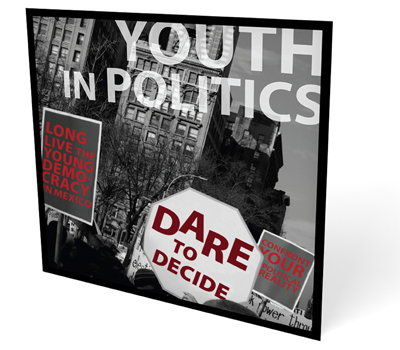Tuesday 19 February 2013
Where are youth in Indian politics?
Published by The Straits Times, Singapore on 2004-05-20
NEW DELHI - While encomiums are being lavishly passed around these post-election days about how participatory democracy is vibrant in India, an inconvenient question needs to be raised: How representative of the country's demographics are the newly elected legislators of the Lok Sabha, the 543-member lower house of parliament?
The answer: Not very. The vast bulk of these legislators are elderly or middle-aged men, pot-bellied, not highly educated, and not terribly tuned in to the dynamics of globalization. There are only 44 women in the new parliament. Only about 35 parliamentarians are under the age of 35.
But more than 50 percent of India's population of 1.1 billion consists of those below 30 years of age. And nearly a half of the total population is female. This may be an ancient culture dating back 5,000 years, but India is a young society. The newly elected Lok Sabha is largely geriatric. Another septuagenarian, Dr Manmohan Singh, is about to become prime minister.
So where are the young people in today's national politics? Other than scions of political dynasties such as the 33-year-old Mr Rahul Gandhi - son of Mrs Sonia Gandhi and the late Prime Minister Rajiv Gandhi - Mr Jyotiraditya Scindia, a member of the Gwalior royal family, and Mr Milind Deora, son of Mr Murli Deora, the Congress Party chieftain of Mumbai, few youths seem to actively participate in electoral politics. Why is that?
One answer lies in the culture. While India's Western-influenced private sector and academe have encouraged the entry of talented, ambitious young men and women, retail politics has largely relied on traditional local leaders who have paid their political dues at the grassroots. The culture venerates seniority. The culture endows older people with canniness that may not necessarily exceed that of younger leaders. Indeed, the culture dictates that older people be given respect by the masses. India, well into its 58th year as an independent nation, continues to be a culture characterized by overwhelming deference for older people.
Another answer may lie in the absence of specific institutions for the training of young people for leadership and public service. While national competitive exams are held each year for induction into the Indian Administrative Service and the Indian Foreign Service, there's no equivalent for politics. Organizations such as the Youth Congress and the extreme rightwing Rashtriya Swayamsevak Sangh (RSS) exist mainly to draw young people in as minions for more established party figures.
Still another answer could be found in a perception that many young people have of politics as a corrupt business. It typically takes around US$2 million to run as a candidate for a parliamentary constituency - not the kind of money easily available to untested young people unless they are supported by shadowy underworld figures or by 'soft money' from industrialists with their own agenda for governance. Political funding in India - unlike in much of the West - continues to be a murky business.
Young people could also be put off by the personal compromises that Indian politics requires. For example, it is well known that women candidates often must offer sexual favours in exchange for the patronage of political mandarins, who are usually male. The perquisites of power available to elected parliamentarians are so extensive that such favours are considered trivial and casual. Tales of sexual trading on India's political bourses are legendary, even in this land of the Kama Sutra. However titillating, these stories can scarcely encourage a young generation that may want less sleaze and more idealism in national politics.
So what to do? How can younger people be invited into politics? How can they be groomed for leadership positions?
Earlier this week, Prof. Klaus Schwab, the founder and executive chairman of the influential World Economic Forum, announced that he was forming a forum for global leaders under the age of 40. His announcement, made at a gathering in Jordan, came after Professor Schwab was awarded the US$1 million Dan David Prize for social entrepreneurship. His prize money would be channeled into the forum, Professor Schwab said, adding that the new grouping would identify potential economic, political, social and academic leaders around the world.
Perhaps something along these lines could be established in India, where's there's no shortage of educated, sophisticated young people in all fields of endeavour. A nonpartisan training institution could be set up, funded by industry and supported by various political parties, to create a cadre of young people for leadership positions. Perhaps it could be called the Institute of Public Service. It could certainly inculcate in young people the notion that politics, the art of the possible, need not be reduced to the lowest common denominator.
This is not to suggest that only India's young people are in need of more opportunities and training for leadership. Even veteran politicians could benefit from the equivalent of refresher courses that brand-name business institutions such as Harvard Business School offer for mid-career executives. In this era of galloping globalization, the ruling classes need to be educated that transparency, ethical behaviour, and responsiveness in governance aren't optional.
The aspirations of India's young people need better representation in the corridors of power. Why should national stewardship be entrusted mainly to those long in the tooth and grey in the hair, especially in a society as young and energetic such as India?
Pranay Gupte,
Senior Writer and Global-Affairs Columnist
© Copyright 2003 - 2008, Pranaygupte.com - by Fluid Design
Subscribe to:
Posts (Atom)
